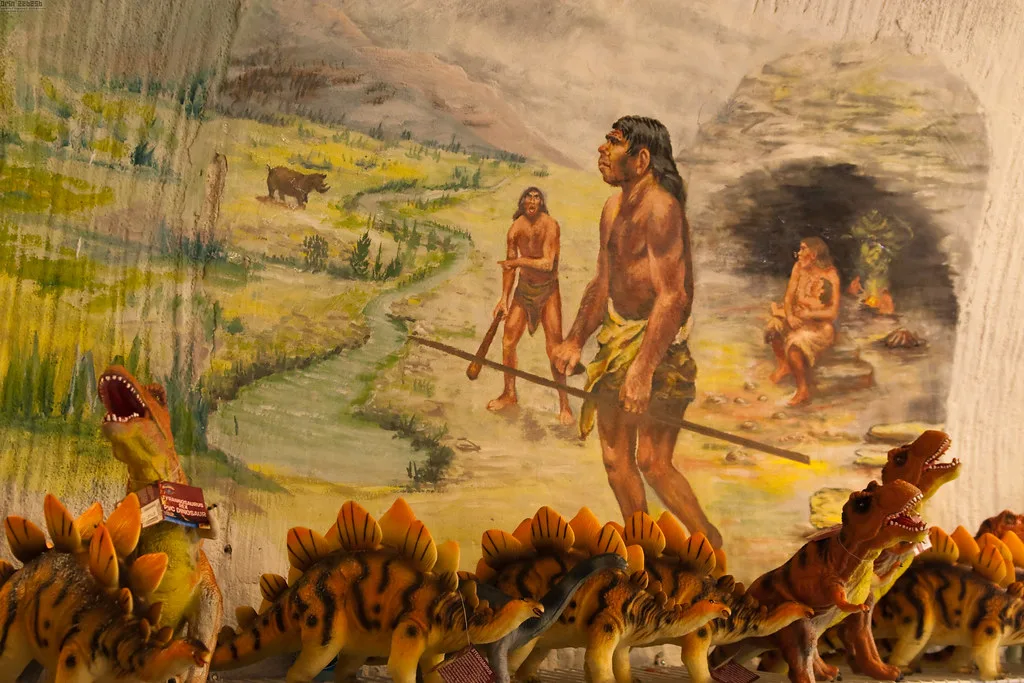Table of Contents
Researchers think that early humans might have been vegans
According to a recent study, cavemen may have been vegans for extended periods.
Traditionally, images of early people show them consuming large portions of meat.
However, new research indicates that a “significant” portion of the diet of North African cave dwellers thousands of years ago consisted of a wide variety of plant-based foods, including acorns, pine nuts, and wild pulses.
A multinational group of experts from France, Germany, and Morocco investigates the food of individuals linked to the Iberomaurusian culture found in the Taforalt cave in modern-day Morocco.
The scientists discovered “surprising” insights about ancient food practices using cutting-edge techniques, such as amino acid analysis of human and faunal remains, carbon, nitrogen, and sulfur analysis in collagen, and zinc and strontium isotope analysis in tooth enamel.

“The study’s major conclusions clearly show that these hunter-gatherers’ diet included a significant proportion of plants belonging to Mediterranean species, predating the advent of agriculture in the region by several millennia,” stated Zineb Moubtahij, the study’s first author.
“Archaeobotanical remains found at the site, such as acorns, pine nuts, and wild pulses, further support this notion.”
The research, which was written up in the journal Nature Ecology and Evolution, also makes the case that plant foods were first included in baby diets and may have even been used as weaning aids.
According to Moubtahij, “This finding has significant implications, as it suggests the potential for earlier weaning practices in pre-agricultural communities compared to previously thought norms for hunter-gatherer societies.” This raises concerns about the absence of agricultural development in North Africa at the start of the Holocene and contradicts the widely held belief that pre-agricultural human cultures had a diet mostly composed of animal protein.”

“Our findings not only provide insights into the dietary practices of pre-agricultural human groups but also highlight the complexity of human subsistence strategies in different regions,” said Moubtahij, a PhD candidate at the Max Planck Institute for Evolutionary Anthropology in Germany.
“Understanding these patterns is crucial to unraveling the broader story of human evolution.”
This study was the first to use enamel-preserved zinc isotopes to infer the diet of prehistoric African tribes.
“North Africa is an important region for the study of human evolution and modern human dispersal,” Moubtahi continued.

“Having a tool that allows us to further explore human diet deep in time in this region will provide valuable insights into human dietary patterns and adaptability in different environments.”
To learn more about prehistoric eating habits and their consequences for human evolution, the study team plans to visit more Paleolithic sites in North Africa and employ cutting-edge methodologies.
“Having a tool that allows us to further explore human diet deep in time in this region will provide valuable insights into human dietary patterns and adaptability in different environments.”
To learn more about prehistoric eating habits and their consequences for human evolution, the study team plans to visit more Paleolithic sites in North Africa and employ cutting-edge methodologies.
“Having a tool that allows us to further explore human diet deep in time in this region will provide valuable insights into human dietary patterns and adaptability in different environments.”
To learn more about prehistoric eating habits and their consequences for human evolution, the study team plans to visit more Paleolithic sites in North Africa and employ cutting-edge methodologies.
“Having a tool that allows us to further explore human diet deep in time in this region will provide valuable insights into human dietary patterns and adaptability in different environments.”
To learn more about prehistoric eating habits and their consequences for human evolution, the study team plans to visit more Paleolithic sites in North Africa and employ cutting-edge methodologies.
vegans vegans vegans vegans vegans vegans
read also : What Was Life Like on Earth When Massive Insects Ruled?
Why scientists believe cavemen may have been Vegan (msn.com)


2 thoughts on “Why researchers think that early humans might have been vegans ? 2024”